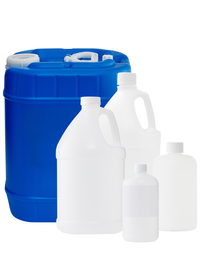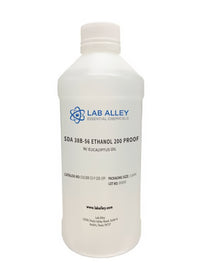Essential Oils
Essential Oils
Also Known As Ethereal Oils Or Volatile Oils
About Essential Oils
Essential Oils, also known as ethereal oils or volatile oils, are naturally aromatic and highly concentrated compounds extracted from plants (leaves, stems, flowers, bark, roots, and other elements of a plant); the oil is considered essential in the sense that it has a distinctive essence or scent of the plant it was extracted from. A variety of factors normally determine the purity and grade of the essential oil, like geographical region, climate, the part of the plant the oil was produced from, soil condition, fertilizer, harvest methods, and the process used for its extraction.
Essential oil molecules are often referred to as “volatile organic compounds”, because of how quickly they change from a liquid to a gas; the chemical compounds in essential oils can move quickly through the air until they meet special sensors in the nose. Essential oils are commonly clear liquids and do not feel slick or oily in texture when applied to the skin since they do not have fatty acids.
Essential oils are highly potent plant chemicals; the potency of a specific essential oil depends on the compounds present in the oil, frequency of use, dosage, the method used to apply it, and the quality (how pure the oil is, integrity, and grade) the oil possesses.
Essential oils can be applied and used in a plethora of different ways. The aroma and chemical composition of essential oils purportedly provide physical therapeutic benefits along with valuable psychological benefits. These benefits are normally achieved by applying the oil to the skin or by inhalation. Many essential oils are often used by diluting them using a carrier and then applying the blend to the skin for absorption. Inhaling certain essential oils using a diffuser will release the scent and the oil into the air and surrounding space. When the oil molecules enter the lungs, they get absorbed into the bloodstream, providing therapeutic benefits as well.
Extraction Process
Essential oils are extracted from nature using several processes; the most common ones are distillation, expression, and solvent extraction.
Distillation: most essential oils are obtained through this process. Raw plant materials such as roots, seeds, fruit peels, wood, and leaves are placed inside a distillation device. The water in the device containing the plant parts is then heated, and the steam is passed through the device, eventually vaporizing all the volatile compounds, which are collected in a receiving vessel.
Expression: This process is based on obtaining the essential oil through mechanical extraction. It is often referred to as cold pressing. The essential oil is extracted from citrus peels that contain a good amount of essential oil in them. This method works on citrus essential oils only and is often done by hand.
Solvent Extraction: This process involves extracting essential oils from plant parts containing small amounts of oil with a solvent such as hexane; these finished products are also referred to as absolutes.
Major uses and applications
Aromatic Use
Aromatic application is one of the simplest and most effective application methods available. If an essential oil is used aromatically, that means the aroma of the oil is experienced through the air.
Diffusing
Diffusing oils using an essential oil diffuser is the easiest way to experience essential oils aromatically; the simple act of adding essential oils to a diffuser and turning it on can transform an entire space.
Topical Use
One of the most significant benefits of using essential oils topically is that it provides benefits that target specific areas of the body to achieve a specific desired effect. Additionally, the aroma of the essential oil can be enjoyed for several hours as it absorbs into the skin. Essential oils should always be diluted before any topical application due to their intense chemistry.
Internal Use
Essential oils can be used to add flavor to food and beverages, providing a creative way to consume oil.
Cooking
Cooking with essential oils is a great way to make meals more flavorful and exciting; it only takes a small amount of essential oil to add powerful flavor to any food or drink since essential oil are very potent compounds.
Cleaning
Due to their chemical and cleansing properties, essential oils can be helpful for cleaning around the house. One of the greatest benefits of cleaning with essential oils is their lovely aromas that are left behind after cleaning.
Wellness
Though not scientifically proven, some suggest that essential oils have the potential to promote healthy digestion, protect against seasonal or environmental threats, support healthy immune function, provide antioxidant support, and more.
Sleep
Essential oils provide a safe, natural solution for promoting a restful environment; many essential oils contain chemical constituents thought to be calming and soothing. A restful bedtime environment can be created by using essential oils with calming, soothing, or relaxing aromas.
Hygiene and Personal Care
Essential oils may have cleansing properties that make them appropriate for personal hygiene. They also add a pleasant fragrance to personal care products.
Fitness
Many essential oils contain soothing properties that help the body by producing a warming or cooling sensation when applied to the skin. These oils don’t change the body’s temperature, but the warming or cooling sensation they provide can help soothe the area before, during, or after a workout.
Mood Management
The uplifting, calming, grounding, soothing, and harmonizing aromas of essential oils make them a viable tool for creating a tranquil space when is need it at moments of stress.
Common Uses and Applications
- Bath
- Aromatherapy
- Massages
- Insect repellent
- General household cleaning
- Compresses
- Facial steam
- Direct palm inhalation
- Pet care
- Room freshening
- Steam inhalation
- Lower stress and anxiety
- Headache and migraine relief
- Nausea relief
- Eases menstrual cramp pain
- Encourage sleep
- Antimicrobial effect
- Tames muscle pain
- Facial toners
- Lotions
- Soaps
- Perfumes
- Shampoos
- Food and beverages
Industries
- Medical
- Pharmaceutical
- Food And Beverage
- Spa And Relaxation
- Personal Care
- Cosmetics
- Fragrance
- Cleaning And Home


















